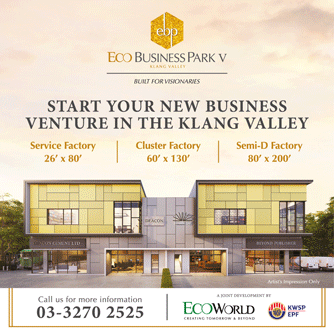Masterplan On The Cards To Ensure Smooth Sailing For Shipping Industry
[ 18-03-2016 ]
Masterplan On The Cards To Ensure Smooth Sailing For Shipping Industry

Bernama pictureBy Harizah Hanim Mohamed
KUALA LUMPUR, March 17 (Bernama) -- A softening in commodity exports and the increasing number of international ultra-large container ships have placed the local seaborne industry in "sea sick" mode.
This has prompted the need for an action plan, which includes the expansion of major ports and development of talent in Malaysia.

Datuk Abdul Aziz Kaprawi
International shipping companies are also racing to increase the capacity of their ships to carry in excess of 14,000 twenty-foot equivalent units (TEUs), leaving local operators gasping in their wake, said Deputy Ministry of Transport Datuk Abdul Aziz Kaprawi.
"We cannot compete with these shipping companies as our capacity is between 3,000 and 4,000 TEUs only," he told Bernama.
As for oil tankers, according to the Maritime Department, there are no ultra-large crude carriers (ULCCs) registered in Malaysia at present.
There is however, one Very Large Crude Carrier (VLCC) with a deadweight tonnage (DWT) of 300,000, belonging to AET Petroleum Tanker (M) Sdn Bhd.
The ULCC and VLCC are the largest operating cargo vessels in the world, with a size in excess of 250,000 DWT and these megaships are capable of carrying huge amounts of crude oil, coal and iron ore on a single trip.
The competition is set to further intensify as major international shipping lines are expected to press another 53 megaships into service in 2016.
There also seems no holding back this competition from heating up as more ultra-large container vessels will be delivered by 2017, Abdul Aziz said.
"At the same time, we are also unable to compete with the lower transport cost offered by the international shipping companies," he added.
Data show that the number of ships registered in Malaysia has declined to 5,139 from the 5,148 recorded in 2013. Of this figure, the tally for full container ships has also fallen to 27 in 2014 as compared with 56 in 2010.
Hence, the Shipping Industry Masterplan, which will be implemented within the next year, is being formulated to address the challenges faced by the industry, Abdul Aziz said.
He said under the masterplan, companies are also being encouraged to develop a supporting industry such as the repair industry, needed by the large ships segment.
"At the same time, under the masterplan, the government also plans to expand existing ports to ensure they meet the needs of mega-sized ships.
"The Transport Ministry has also forged cooperation with the Malaysian Shipowners' Association to ensure the transformation efforts for the industry can be implemented and undertaken in a holistic manner. We expect to complete the masterplan within two years," he added.
Abdul Aziz said at the same time, the matter of human resource will also be addressed, as one of the constraints of the shipping industry.
"We are developing new academies, but find limited interest among the people in becoming sailors. As such, we will launch campaigns to overcome this," he added.
-- BERNAMA






























